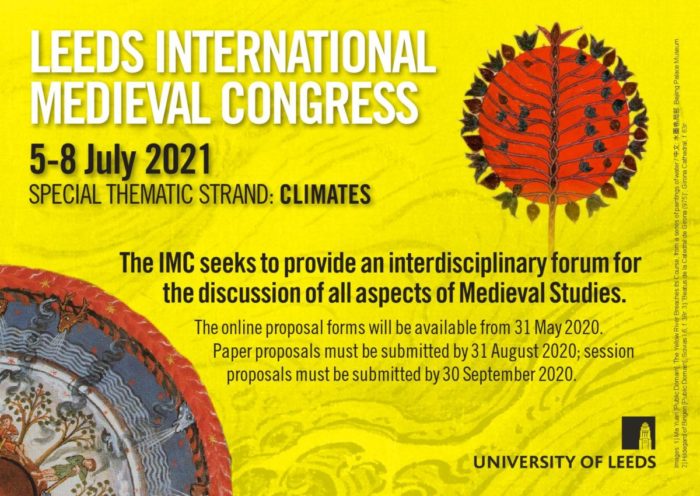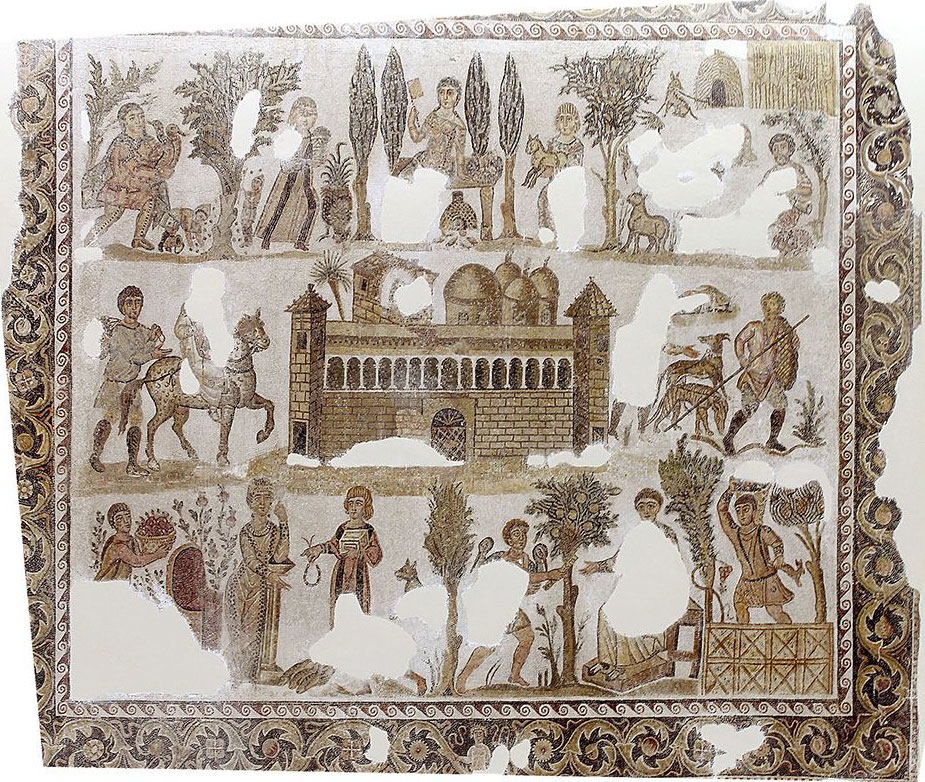The International Medieval Congress at Leeds is approaching. Note that registrations will close on Friday 25 June 2021. See also on this website: events.
Papers touching on Sidonius and his times include:
Panel: #TakeBackControl: Imperial Authority in Late Antiquity
Time: 5 July 2021: 11.15-12.45
Programme here
Organiser: Jeroen W.P. Wijnendaele
Moderator: Benet Salway
Featuring among others: Jeroen Wijnendaele, ‘”The Last Shadow Puppets”?: The Final Fight for Western Imperial Control, 455-480’.
Panel: Writing Letters in Climates of Conflict during Late Antiquity
Time: 7 July 2021: 16.30-18.00
Programme here
Organisor: Daniel Knox
Moderator: Danuta Shanzer
Featuring among others: Madeleine St. Marie, ‘A Bishop in Unstable Times: Conflict in the Letters of Sidonius Apollinaris’.
Panel: Seasons of the Mind: Weather and Interiority in Literature
Time: 8 July 2021: 16.30-18.00
Programme here
Organiser: IMC Programming Committee
Moderator: Andrew Richmond
Featuring among others: Richard Rush, ‘When the Rhône Boils: Literary Uses of Hot Summer Weather in Sidonius Apollinaris’s Epistula 2.2 and the Vita Apollinaris‘.
At this year’s virtual Leeds International Medieval Congress, Sidonius will be addressed by Madeleine St. Marie, ‘A Bishop in Unstable Times: Conflict in the Letters of Sidonius Apollinaris’, and Richard Rush, ‘When the Rhône Boils: Literary Uses of Hot Summer Weather in Sidonius Apollinaris’s Epistula 2.2 and the Vita Apollinaris‘.
For details, see the Events post on this website.
Special thematic strand: Climates.
Panel: #TakeBackControl: Imperial Authority in Late Antiquity
Time: 5 July 2021: 11.15-12.45
Programme here
Organiser: Jeroen W.P. Wijnendaele
Moderator: Benet Salway
Featuring among others: Jeroen Wijnendaele, ‘”The Last Shadow Puppets”?: The Final Fight for Western Imperial Control, 455-480’.
Panel: Writing Letters in Climates of Conflict during Late Antiquity
Time: 7 July 2021: 16.30-18.00
Programme here
Organisor: Daniel Knox
Moderator: Danuta Shanzer
Featuring among others: Madeleine St. Marie, ‘A Bishop in Unstable Times: Conflict in the Letters of Sidonius Apollinaris’.
Panel: Seasons of the Mind: Weather and Interiority in Literature
Time: 8 July 2021: 16.30-18.00
Programme here
Organiser: IMC Programming Committee
Moderator: Andrew Richmond
Featuring among others: Richard Rush, ‘When the Rhône Boils: Literary Uses of Hot Summer Weather in Sidonius Apollinaris’s Epistula 2.2 and the Vita Apollinaris‘.


